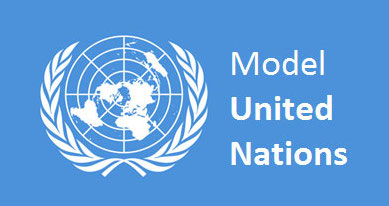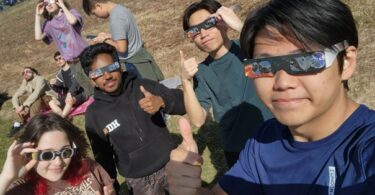
BANGALORE, India – Sitting on the second leg of my nearly 18-hour journey, I’m trying to stay awake and finish some last minute research. As I wearily highlight endless facts from my documents, I know that sleeping would lead to a horrid jet lag that I could clearly not afford, considering the conference would start the morning after our arrival.
Endless weeks of preparation, research, and practice would pay off in this three-day event, and I wanted to savor every moment of it, considering that I came all the way from India to Boston for it.
It was my first large Model United Nations conference, and I wanted to have a great experience. And an incredible experience it was.
The first day of the conference, I stepped into the room for the Committee for Crime Prevention and Criminal Justice in my formal attire, bag filled with documents, and a head spinning with excitement.
I was astonished to see nearly a hundred other delegates in the room, all representing various different countries.
I was the delegate of Mauritania, a small African country. Although it was a country I had never even heard of before, I soon would learn that it was a rather fascinating nation.
Here’s a little bit about how Model U.N. works: Students represent delegates of countries, and are placed in various committees. There are usually one or two issues to discuss. These can be political, social, or economic problems or controversies.
Delegates present their ideas during caucuses, moderated (the more formal debate), or unmoderated (the less formal debate). Delegates form alliances with other nations, and write resolutions, or their ideas of solutions to combat the problem. Finally, all the delegates vote on which resolutions they want to pass, and as usual, majority rules.
“Decorum delegates. Are there any motions on the floor?” These opening words would be the ones most commonly heard throughout the conference, spoken by the chairperson, to get delegates in order and ready to debate.
We agreed that the first topic we would discuss was “Narcotic Drug Proliferation.”
The lamentable situation was indisputable. The spread of drugs leads to concerns not only with the personal health of the drug users, but also with organized crime, corruption in society, funding for terrorism, illegal trafficking, and a distortion of well-structured economies.
We heard that one out of every five people in the world has used narcotic drugs, opium cultivation has doubled worldwide from 2005 to 2007, and coca production has increased by 27 percent in Columbia.
But what was controversial was the method of solutions countries proposed to solve the problem.
Some delegates suggested legalization of drugs, which was condemned rather harshly by most others. Others considered awareness programs, alternative development, and tighter border security.
I worked with a truly incredible, talented, and passionate team of sponsors for our resolution. We were a bloc of developing nations coming together to fight for the common cause. We were single-mindedly focused on our plans, and worked with dedication and team spirit.
Although our solutions were, in my opinion, practical, viable, and effective, we lacked the support of larger nations, and hence our resolution did not pass. Regardless, the experience we gained by working together was remarkable. The zeal I portrayed in my speeches to the committee truly reflected my enthusiasm for the cause. The icing on the cake during this whole experience was when I was awarded the Best Delegate award for my committee.
To some, Model U.N. seems pointless. It isn’t the real UN, which some believe lacks substantial power in several world issues today. And the measures we, the delegates of Model U.N., implement can never be enforced.
But what I feel that students gain is a broader perspective of issues and the opportunity to work with other students from around the world, each representing a plethora of countries, cultures, and foreign policies.
Model U.N. is a great way to interact with people, form alliances, be a team player, and most importantly, to become aware of grave global issues the world faces and think of practical solutions.
It fosters future world leaders who could very well be diplomats at the real United Nations one day.
When I returned to India, I did not merely come with a certificate and trophy gavel. I went home with an experience of a lifetime.
Janani Ramachandran is a Junior Reporter for Youth Journalism International.



